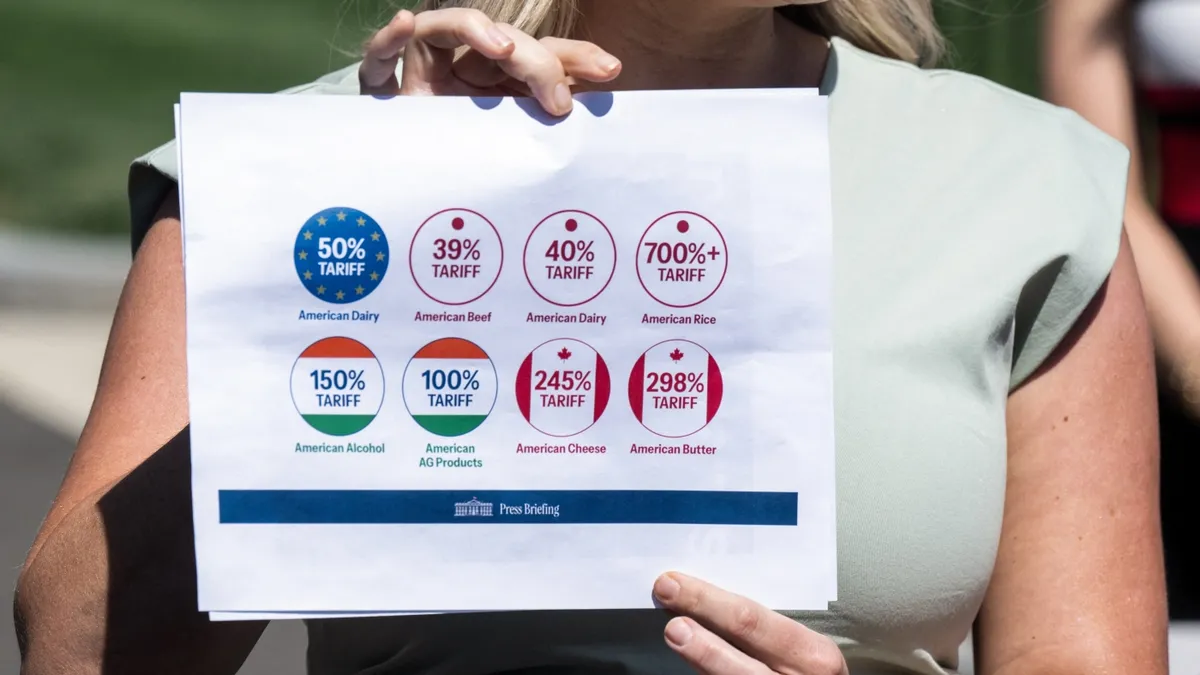
On Wednesday, President Trump is poised to announce what he refers to as reciprocal tariffs. These tariffs are essentially taxes imposed on imported goods from a wide array of countries, designed to penalize them for existing trade barriers. The President is branding this initiative as Liberation Day, with promises that it will generate foreign tariff revenues, which he plans to allocate toward U.S. tax cuts and deficit reduction. Additionally, Trump asserts that this move will ignite a renaissance in U.S. manufacturing.
Despite the optimistic outlook, Trump's pledge glosses over significant concerns regarding the economic repercussions for U.S. consumers. Economists predict that American households will face higher prices as a direct consequence of these tariffs. Furthermore, U.S. farmers and exporters may be adversely affected by retaliatory measures from other nations. Manufacturers within the U.S. could also suffer due to increased costs for imported materials that are essential for their production processes.
While the specifics of Trump's tariff plans remain vague, the Yale Budget Lab has estimated that the average American consumer could end up paying between $2,700 and $3,400 more annually. This uncertainty surrounding the policy has already caused volatility in the economy, as demonstrated by the S&P 500 stock index recently closing its worst quarter since 2022, while consumer confidence has plummeted to a 12-year low.
President Trump has claimed that the new tariffs will reflect the rates imposed by other countries on U.S. goods. However, there have been indications that he is moderating his approach. "They took advantage of us," Trump told reporters on Monday, suggesting a more lenient stance, stating, "We are going to be very nice by comparison to what they were." He hinted that the numbers would be lower than current tariffs and, in some instances, "maybe substantially lower."
As of now, few details have been disclosed about which countries and products will be affected by the reciprocal tariffs. Trump's economic policy has been characterized not just by aggressive rhetoric around tariffs, but also by a notable degree of vagueness and unpredictability regarding his policy announcements. To date, he has enforced tariffs on steel, aluminum, various Chinese goods, and products from Mexico and Canada. Nevertheless, he has also threatened, postponed, or retracted tariffs on a myriad of other goods.
A memo dated February 13 initiated the process for these reciprocal tariffs, instructing Cabinet members and advisers to investigate how non-reciprocal trade relationships may be detrimental to the U.S. economy. Reports were to be submitted suggesting ways to make trade with specific countries reciprocal. At that time, Commerce Secretary Howard Lutnick indicated that studies would be completed by April 1, laying the groundwork for potential tariff implementation.
While the White House has not confirmed when specific tariffs will be imposed, Press Secretary Karoline Leavitt mentioned that they would be enacted immediately. Trump's recent comments suggest a potential shift in his tariff strategy, as he indicated a willingness to be more lenient. He remarked, "In fact, I'll probably be more lenient than reciprocal because if I was reciprocal, that would be very tough for people."
Economists are divided on whether Trump's approach should be broad or more targeted. Doug Irwin, a professor of economics at Dartmouth College, noted that a more conventional strategy would involve specifically targeting a country or product. He stated, "Things are unfair in different ways with different countries, and it's very hard to have a uniform, blanket approach to all of that." Former Deputy U.S. Trade Representative John Veroneau echoed this sentiment, advocating for a more surgical approach to tariff implementation. He cautioned that blanket tariffs may not effectively address specific trade barriers faced by U.S. exporters.
The overarching concern remains: what is the ultimate goal of these tariffs? Trump's rhetoric often intertwines various policy issues, raising questions about the clarity and effectiveness of his tariff strategy.